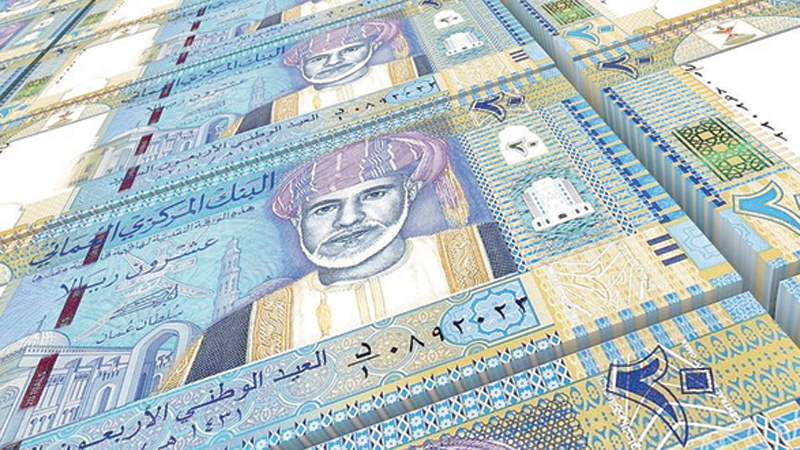

A significant uptick in corporate income tax collections helped partly offset a sharp decline in Oil & Gas export revenues during 2019, the Central Bank of Oman (CBO) revealed in its newly published 2019 Annual Report.
Revenues from income tax on businesses and corporate organisations jumped a record 34.9 per cent to RO 624.8 million in 2019, up from RO 463.1 million a year earlier. The increase came in the wake of amendments to the Income Tax Law, boosting the income tax rate from 12 to 15 per cent, while bringing an array of previously exempt small firms and industries into the ambit of the amended law. Additionally, a flat rate of three per cent was introduced on previously tax-exempt companies falling under the threshold of RO 30,000 per annum.
The amendments, which came into effect at the start of the 2017 tax year, brought mining businesses, private schools, hotels, universities and nurseries, among other, within the remit of the Income Tax Law.
In all, tax revenues, which are clubbed under the sub-head of ‘Other Current Revenues’, rose 4.4 per cent to RO 2.331 billion in 2019, up from RO 2.233 billion a year earlier. ‘Other Current Revenues’ comprise revenues from taxes and fees, non-tax revenues (collections from water, port and airport services, public communications toll services, rents earned on government land, interest on government deposits, mining revenues, and income earned on government investments).
Significantly, revenues from taxes and fees grew 14.1 per cent to RO 1.442 billion in 2019, up from RO 1.264 billion a year earlier, accounting for more than half of ‘Other Current Revenues’ (about 62 per cent) during 2019, the report said.
Aiding the uptick in tax revenues was excise tax (also known as ‘sin tax’ or ‘selective tax’), which came into force from June 15, 2019 on a selection of goods deemed harmful to health.
It was imposed on tobacco and tobacco derivatives, carbonated drinks, energy drinks, and special purpose goods (including alcohol and pork products).
“The strong growth in income tax on companies and establishments was the main driver of growth in taxes and fees revenues,” said the apex bank in its annual report. Licence fees also spiked 11.5 per cent to RO 583.5 million last year, up from RO 523.5 million in 2018.
Importantly, the growth in tax and related revenues helped partially alleviate a steep decline in hydrocarbon earnings, which represent a hefty 58 per cent of total revenues accruing to the government. Net oil revenues dipped 3.3 per cent to RO 10.588 billion last year, down from RO 10.949 billion in 2018. Gas revenues, which accounted for 17.9 per cent of total revenues, fell 6.7 per cent to RO 6.098 billion, down from RO 6.536 billion in 2018.
Also helping counterbalance the decline in hydrocarbon revenues was an upturn in non-oil revenues, the report said. “Non-hydrocarbon revenues witnessed a growth of 8.7 per cent in 2019 and constituted about 24.0 per cent of total government revenues. The growth in non-hydrocarbon revenues was driven by a hike of 4.4 per cent in other current receipts and an upturn in capital repayments. On the other hand, capital revenues declined significantly by 46.9 per cent in 2019 but constituted a meagre portion of total revenues,” the Central Bank noted.
Significantly, fiscal reforms initiated over the 2014 – 2019 period have contributed to a 17 per cent increase in non-hydrocarbon sources of revenue, driven primarily by the introduction of excise taxes, the expansion of the corporate income tax, and some reforms in government service fees.
The Medium Term Fiscal Plan unveiled by the Omani government last month to help achieve fiscal balance by 2024 envisions a series of measures and initiatives to boost non-hydrocarbon tax earnings and collections.
A notable step is the planned introduction of Value Added Tax (VAT) with effect from April 2021. Additionally, the government is actively weighing the introduction of personal income tax on high-earners.
Oman Observer is now on the WhatsApp channel. Click here



